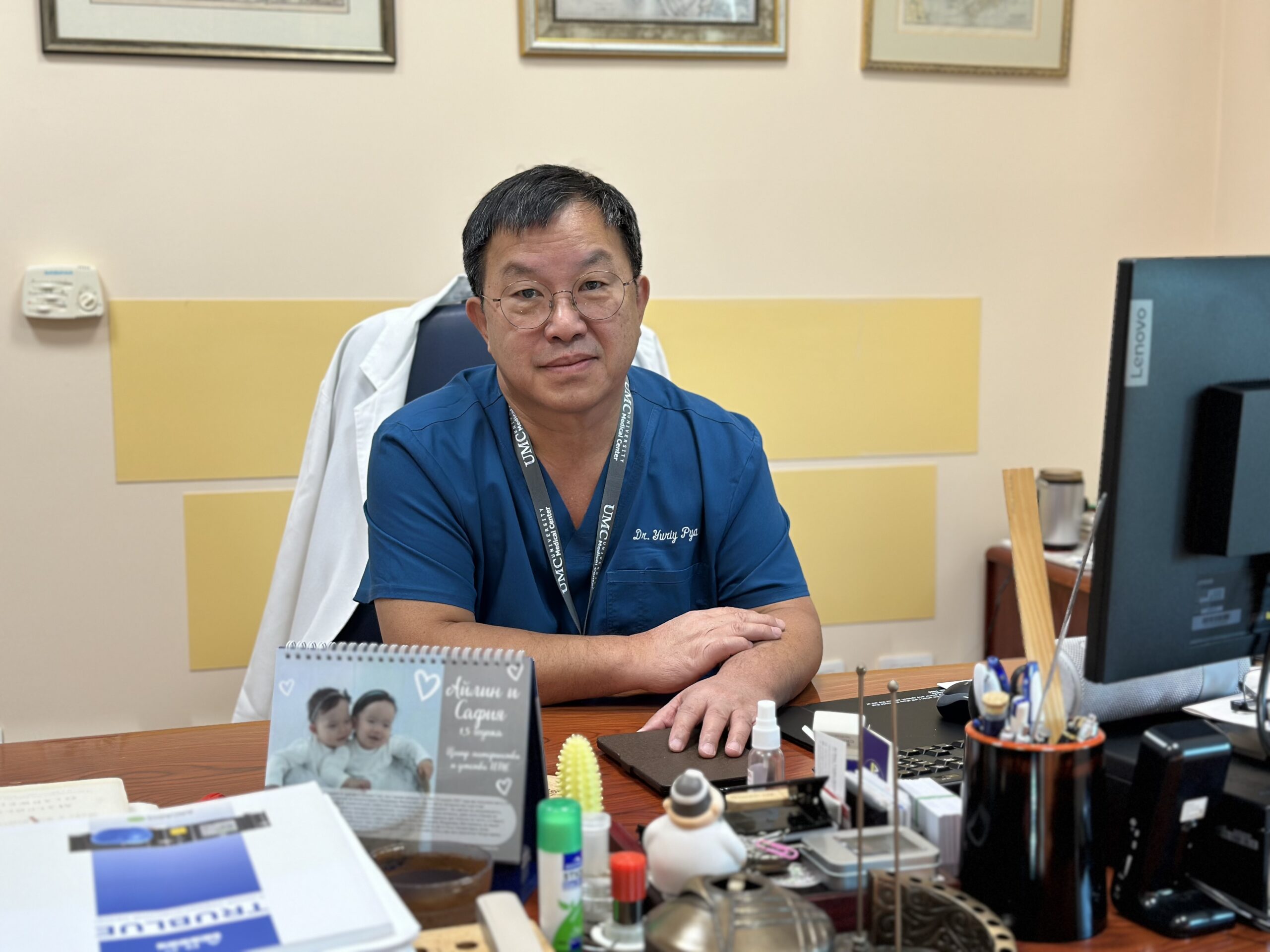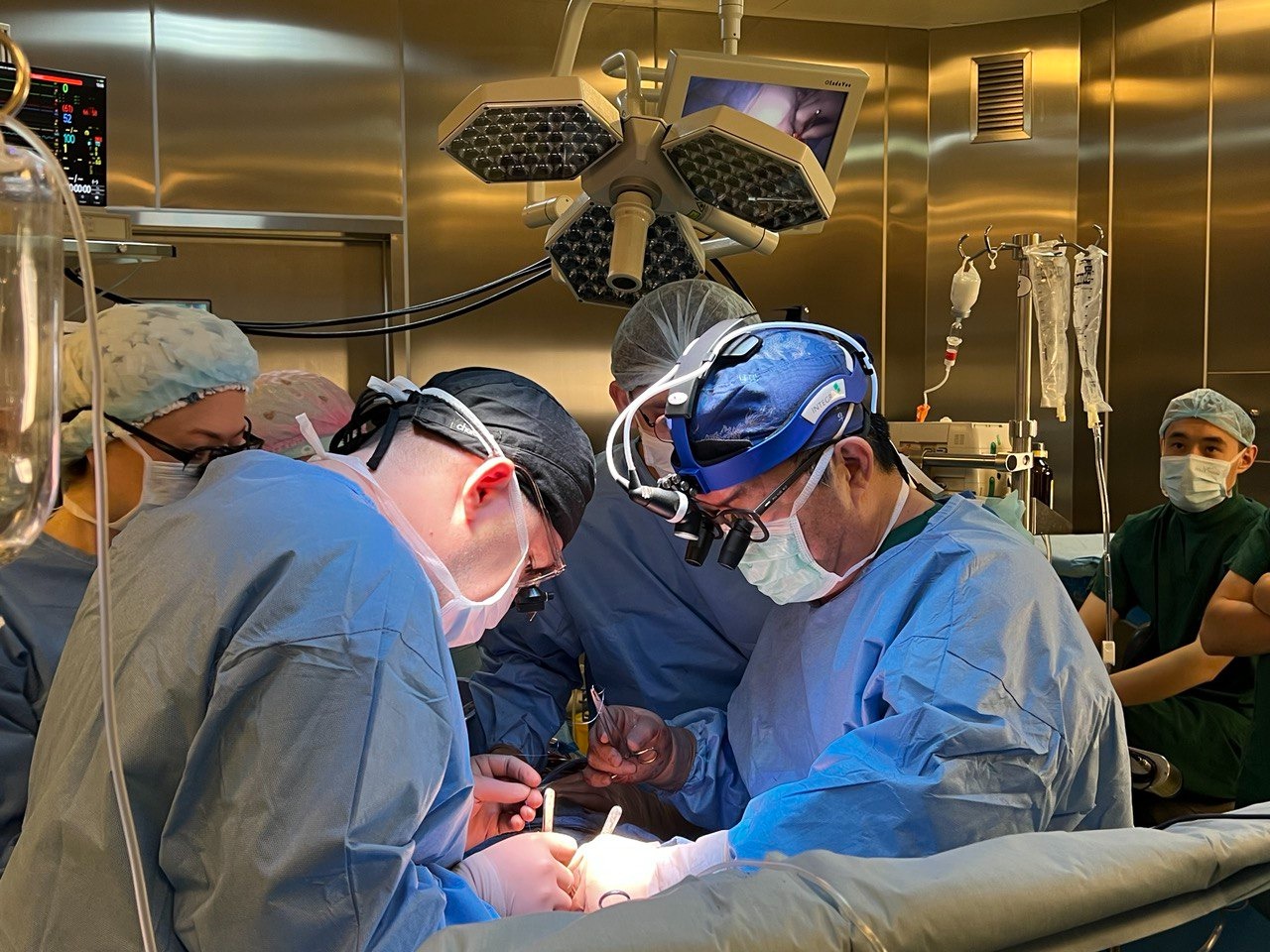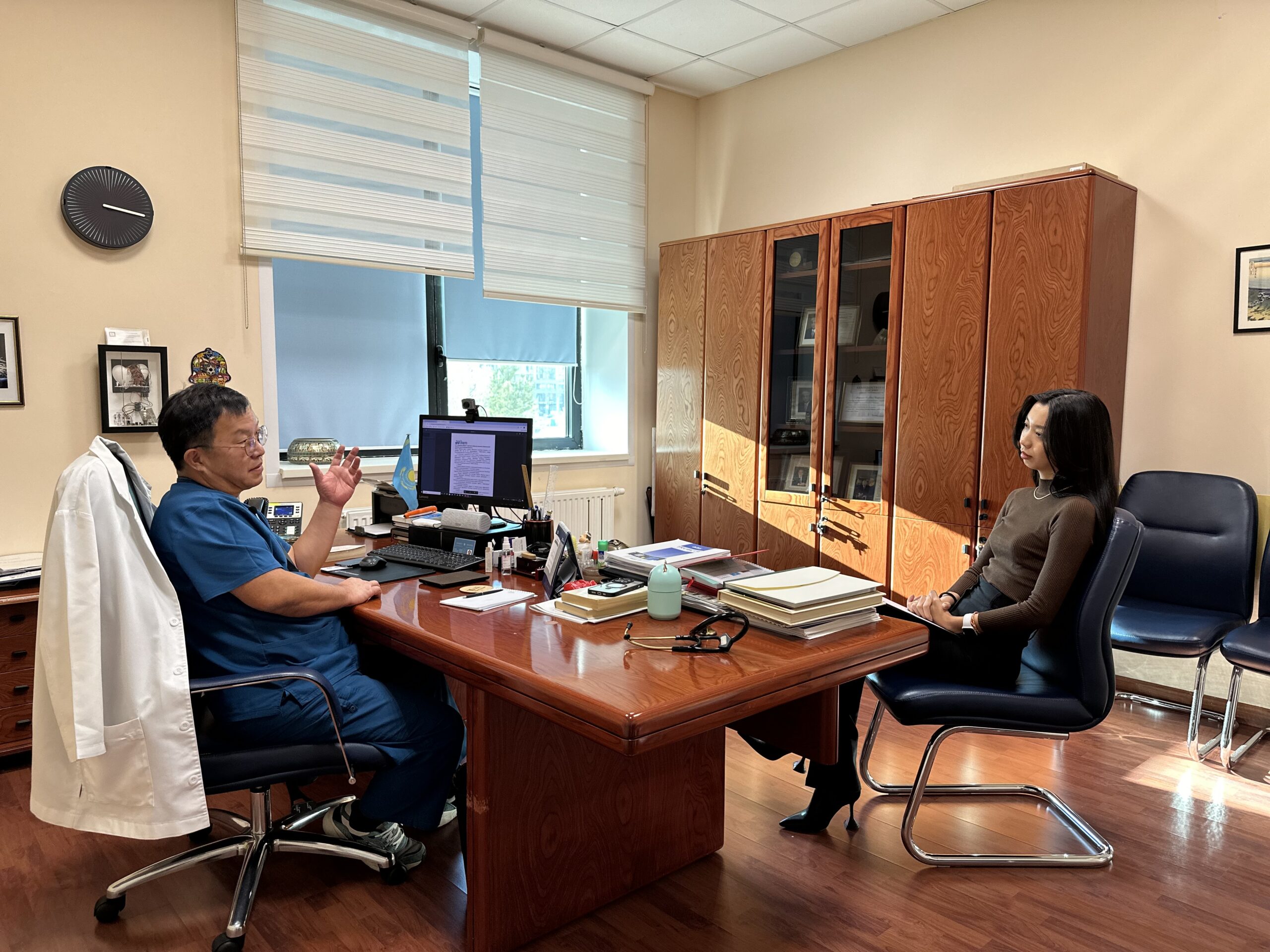ASTANA – Yuriy Pya, a renowned cardiac surgeon, humble and ambitious, achieved remarkable success through hard work and a belief in his own abilities and the potential of Kazakhstan. Appointed as Kazakhstan’s Goodwill Ambassador by the Foreign Ministry for his significant contributions to promoting the country’s image abroad, Pya emphasized that his duty, both as an ambassador and personally, is to show young people that it is possible to accomplish world-changing feats right here in Kazakhstan.

Yuriy Pya. Photo credit: The Astana Times
From surgeon to CEO
As the CEO of the University Medical Center (UMC), Pya and his colleagues save lives every day. The center’s reputation has grown internationally, with foreign patients seeking treatment, further establishing Kazakhstan as a leader in cardiac surgery. The UMC has performed numerous heart, lung, liver, kidney, bone marrow transplants, which are considered as one of the most advanced types of surgeries for saving peoples’ lives.
Despite his current success, Pya’s journey began with challenges. Born into a family of rural teachers, he initially wanted to be an engineer or a physicist, aspiring to study celestial bodies and space. After several unsuccessful attempts to enroll in the Moscow Institute of Physics and Technology, his mother suggested surgery as a career path. Pya began his medical career as a general surgeon and traumatologist, eventually discovering his true passion in cardiac surgery.

Yuriy Pya during a surgery. Photo credit: UMC
Today, he holds a Hirsch index of 17, reflecting the international recognition of his scientific work. Under his leadership, the UMC as a key part of the integrated system of NU Medicine became the only center in the CIS to earn Joint Commission International (JCI) accreditation as an academic medical center. The center has, in just 13 years, been transformed into a thriving medical institution.
What Heart Center does
Designated as a center of excellence, the UMC organizes international conferences, masterclasses, conducts research and shares their knowledge and experience with local and foreign colleagues, as well as participates as a partner in sport events.
UMC is also committed to charity work, organizing health days focused on diagnosing high blood pressure and offering medical screenings for women and girls to detect diseases early. Moreover, the center’s team visits orphanages and veterans’ homes to provide free medical examinations and treatment for those in need.
Teaching above all
Pya’s team has traveled across Kazakhstan and introduced advanced medical technologies that are now maintained by local specialists. Despite these achievements, Pya does not view the implementation of surgeries previously unavailable at the UMC as the most significant milestone. Instead, he views the teaching of medical personnel as the most impactful aspect of his work.
“My core philosophy is to create equal opportunities for all citizens of Kazakhstan and ensure equal access to medical care, regardless of their social status—whether they are a janitor, a highly specialized expert, a bureaucrat, a member of the government, or even the president,” he emphasized.
How to improve access to medical services
With over 40 years of experience, Pya believes his role extends beyond being a surgeon to organizing healthcare improvements in Kazakhstan. He stressed two key areas for improvement: first, raising medical education to international standards to ensure specialists are globally competitive; and second, decentralizing medical services to bring healthcare closer to patients across the country, eliminating the need for long-distance travel to access treatment.
He acknowledged that this process is slow, as introducing new technologies in medicine requires highly trained professionals. It takes over ten years to train a specialist, and an additional five to ten years of experience for them to become a skilled doctor.

“In our field, being recognized as a healer is true success.” – Yuriy Pya. Photo credit: The Astana Times
Pya noted that humanity is developing at a much faster pace than 50 years ago. He anticipates that many new technologies will emerge, significantly transforming various fields. For example, artificial intelligence (AI) in medicine is already being used primarily for diagnostics, accelerating processes such as analyzing ultrasound, X-ray, and MRI results. While AI can quickly provide solutions, Pya emphasized that its effectiveness still depends on how humans design these systems.
“I think that AI will not surpass human natural intelligence at this point in time,” he stated.
“Passion, empathy and compassion”
Pya also highlighted the need for prompt integration of new medical technologies into healthcare systems to ensure continuous improvement and help doctors keep pace with advancements. However, beyond technical proficiency, he believes that doctors need strong communication skills, passion, empathy and compassion.
He explained that while everyone has these qualities, the key is activating them to excel, particularly in the medical field, where the goal is to become a true healer.
“If we talk about medicine, specifically about doctors, success is first and foremost the trust of patients and the recognition of colleagues. I don’t really agree with using the word ‘success’ for doctors. In our field, being recognized as a healer is true success,” he said.
Pya recalled a period in his life when he was fired and briefly unemployed. Reflecting on that time, he believes that without this setback, he might never have established the UMC. He once even left medicine to try his hand at business.
In 1991, he traveled abroad for the first time to a conference in Seoul, South Korea, where he gave a speech in English, barely knowing the language. At the time, he thought he had done well by reading all of what he prepared. However, years later, while working in Türkiye and learning Turkish within four months, he discovered from colleagues that they had not understood any of his speech during that Seoul conference. His time in Türkiye, starting with simple tasks such as transporting patients before moving on to more complex medical work, helped him gain valuable experience.
“I have had many moments of disappointment, when I wanted to give up and walk away. But still, I think that giving up is for the weak,” he said.
In Türkiye, he worked so hard for seven months that he barely left the hospital. This dedication earned him an invitation to the United States, where he undertook an internship in pediatric cardiac surgery. Mastering English was essential for his success there.
“Now, when I talk with colleagues and young people, I encourage them to ask any questions. The worst thing is silence – when people don’t ask anything. I strive to motivate young people to overcome their self-imposed barriers because, if they truly desire it, anything is possible,” he said.
After returning to Kazakhstan, Pya was driven by a passion to establish the medical center, which he eventually realized. However, he emphasizes that he does not wish to rest on his laurels.
“There is no limit to perfection, right? Positivity and love are endless. No matter how much positivity there is, it always feels insufficient, while negativity, no matter how little, can seem overwhelming,” he remarked.
